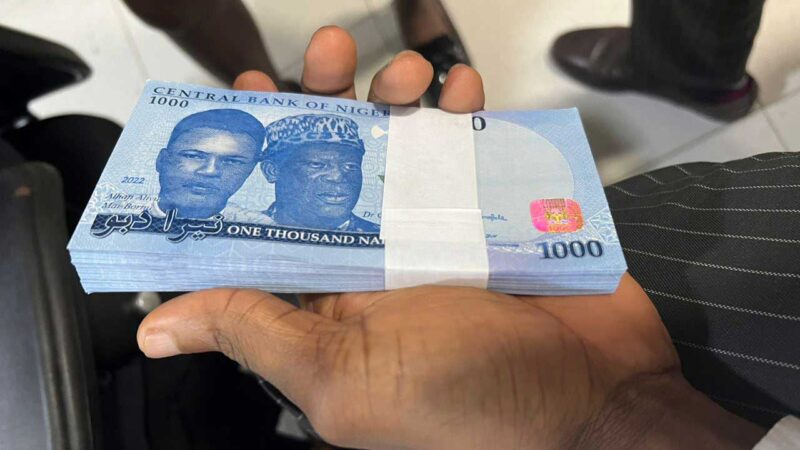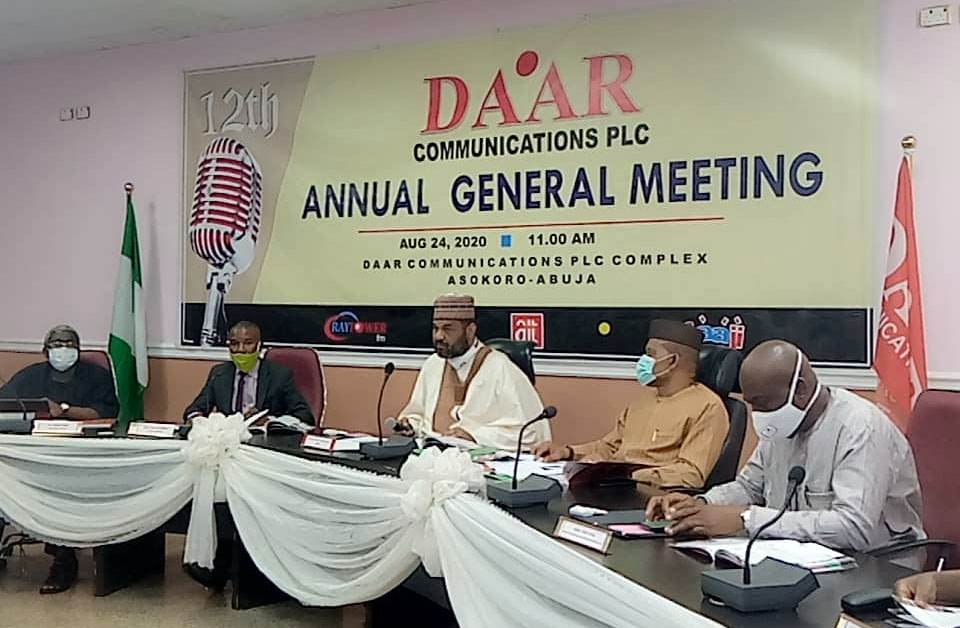Business
Local fuel refining, $750m loan will stabilize naira – Report

Local fuel refining, $750m loan will stabilize naira – Report
The naira is projected to exchange between N1,423.26/$ and N1,550/$ in the second half of this year, report by United Capital report titled: Balancing Act: Nigeria’s Path to Stability.
The naira yesterday exchanged at N1,570/$ at the parallel market, and appreciated by 6.05 per cent to close at N1,500.32/$ at the Nigerian Autonomous Foreign Exchange Market (NAFEM)- official window.
The report released yesterday, said local petrol supply from the Dangote Refinery and a $750 million disbursement from the World Bank will keep naira stable in the remaining months of the year.
The World Bank recently granted the Federal Government a $750 million loan to offer subsidies to developers and operators of solar mini-grids in areas across the country that lack electricity access.
The loan, approved under the Distributed Access through Renewable Energy Scale-up (DARES) project, aims to increase the supply of electricity to households and micro, small, and medium-sized enterprises (MSMEs) through private sector-led distributed renewable energy initiatives.
The commencement of production of Premium Motor Spirit (PMS) also known as petrol by the Dangote Oil Refinery and Petrochemicals company is also expected to lift the naira.
The development is expected to harness Africa’s abundant crude oil resources to produce refined products locally, even as the company aims to catalyze a virtuous cycle of industrial development, job creation, and economic prosperity
READ ALSO:
- Naira drops to N1,585/$ on parallel market
- Planned protest: Ohanaeze Ndigbo warns Bayo Onanuga over anti-Igbo comment
- Netanyahu faces delicate balancing act in US after Biden exits race
The report said financial system liquidity is expected to increase by 40.2 per cent in the second half of the year while Bond yields are likely to remain elevated due to the government’s reliance on the domestic debt market. It added that investors are expected to favor short-term rates over longer-term exposure, leading to mixed sentiments in the bonds market.
It said the naira has experienced notable volatility in during the first half of 2024, with much of the weakness attributed to devaluation in January 2024 when the Central Bank of Nigeria (CBN) revised its methodology for setting the official exchange rate.
“The currency weakened by 34.33 per cent in the official market, from N988.46/US$ on January 2, 2024, to N1.505.30/US$ by June 28, 2024, and fell by 21.05 per cent in the parallel market, from N1,200/$ to N1,520/$ over the same period,” it said.
It explained that although this adjustment has seen improvements in the elimination of the premium between the official and parallel markets, and improved market turnover, indicating some reform progress, but the local currency has continued to weaken against the greenback.
“However, the naira continued to weaken, losing 7.3 per cent against the US dollar post-devaluation due to high dollar demand for fund repatriation after the CBN cleared a backlog of foreign exchange requests, coupled with the ongoing dependency on imported petrol,” it said.
The report said the sustainability of these measures’ hinges on improved capital inflows through improved crude oil production and enhanced export revenues replenishing foreign reserves.
“Should these vital inflows fail to materialize, the efficacy of CBN interventions may wane over time, leaving the naira vulnerable to further depreciation in the absence of robust external support,” it said.
In addition to the power subsidy, the Federal Government plans to provide performance-based grants to eligible mini-grid operators based on new customer connections for isolated mini-grids and a percentage of capital expenditures for interconnected mini-grid projects.
The grant will also cover standalone solar (SAS) systems for households, MSMEs, and agribusinesses, supporting the rapid deployment of SAS solutions in rural and underserved areas through supply- and demand-side support.
Local fuel refining, $750m loan will stabilize naira – Report
Business
Nigerian Equities Post World’s Second-Best Dollar Returns in 2026, Recover $21bn

Nigerian Equities Post World’s Second-Best Dollar Returns in 2026, Recover $21bn
Nigerian equities have emerged as one of the best-performing stock markets globally in 2026, delivering the world’s second-best dollar returns after years of currency-driven losses and weak investor sentiment. The local market has risen 31 percent in dollar terms this year, helping investors recoup about $21 billion in market value lost following the sharp naira devaluation in 2024.
Market capitalisation on the Nigerian Exchange Group has climbed to approximately $84 billion, representing a 58 percent increase from levels recorded before the currency collapse. According to Bloomberg, Nigeria’s benchmark equity index has surged 31 percent year-to-date, significantly outperforming global peers. The rally far outpaces the 11 percent gain in the broader emerging-market index and the 6.4 percent advance recorded by frontier-market stocks.
Analysts attribute the sharp rebound to a combination of stronger corporate earnings, exchange-rate stability, and renewed investor confidence following wide-ranging economic reforms. Olabode Williams, an analyst at SBG Securities Ltd, said companies hardest hit by the naira’s earlier collapse have now stabilised their balance sheets and returned to profitability. He noted that investors are increasingly pricing in growth as corporate fundamentals improve, adding that Nigerian equities are becoming more attractive to both local and foreign investors after years of underperformance.
READ ALSO:
- Ramadan Begins in Nigeria as Sultan Confirms Crescent Sighting
- Deadlock at National Assembly as House Snubs Electoral Act Bill Meeting on E-Transmission Clause
- Maikori Accuses Ex‑Governor El‑Rufai of Persecution Over 2017 Tweet
The rally has also been supported by a firmer naira, which has appreciated by more than seven percent against the dollar in 2026, ranking as the world’s second-best performing currency among those tracked by Bloomberg. The currency rebound has strengthened dollar-based equity returns and helped reverse losses triggered by earlier exchange-rate volatility.
Foreign participation has increased sharply alongside the rally. Data from the Nigerian Exchange Group shows that non-Nigerian trading in local equities reached a 19-year high in 2025. Transactions by foreign investors tripled to ₦2.65 trillion ($1.97 billion) from ₦852 billion in the previous year, reflecting renewed global appetite for Nigerian risk assets.
Market analysts believe the rally could extend further if major listings materialise. Gloria Fadipe, an analyst at CSL Stockbrokers Ltd, a unit of FCMB Group Plc, said the market could exceed $100 billion in valuation this year if large-scale listings proceed. She noted that potential listings of Dangote Refinery and Dangote Fertiliser could deliver capital gains of up to 34 percent while deepening market liquidity.
The rebound comes amid broader macroeconomic reforms introduced by Bola Tinubu, including the unification and liberalisation of the foreign-exchange market. While the reforms initially triggered volatility and inflationary pressure, economists say they are restoring policy credibility, improving capital inflows, and repositioning Nigerian assets for sustained long-term growth.
Nigerian Equities Post World’s Second-Best Dollar Returns in 2026, Recover $21bn
Business
Naira Maintains Stability Against Dollar as CBN FX Measures Keep Markets Calm

Naira Maintains Stability Against Dollar as CBN FX Measures Keep Markets Calm
The Nigerian Naira showed relative stability against the United States Dollar during Tuesday, February 17, 2026, trading sessions in both official and parallel foreign exchange markets. After a weekend of consolidation, the local currency continued to hover around the ₦1,350 band, reflecting the effectiveness of the Central Bank of Nigeria’s (CBN) liquidity management policies.
In the official Nigerian Foreign Exchange Market (NFEM), the Naira opened at ₦1,351.18 per dollar and adjusted slightly by mid-morning to ₦1,354.86, a movement attributed to early-week corporate demand. Analysts say the Electronic Foreign Exchange Matching System (EFEMS) and the Monetary Policy Rate (MPR) have helped anchor the official exchange rate below the ₦1,400 mark for over two weeks, providing a predictable environment for businesses and investors.
READ ALSO:
- 28 Wedding Guests Die in Separate Road, Boat Accidents in Enugu, Kebbi
- FG, Progressive Governors Forum Pledge ₦8bn Relief for Singer Market Fire Victims
- Former INEC REC Warns of “Chaos” in 2027 Over E-Transmission of Election Results
Meanwhile, in the parallel market, the Naira traded at a traditional premium, ranging from ₦1,380 to ₦1,440 per dollar in commercial hubs like Lagos, Abuja, and Kano. Traders reported sufficient dollar supply for personal travel and small-scale business transactions, noting that the narrowing gap between official and parallel rates has discouraged speculative hoarding and improved market efficiency.
Recent CBN interventions, including expanding access to licensed Bureau De Change operators and enforcing regulatory compliance, have strengthened FX liquidity, allowing for more transparent price discovery. Combined with Nigeria’s moderating inflation rates and robust external reserves of around $49 billion, these measures have bolstered confidence in the Naira and helped limit excessive volatility.
Market watchers, however, caution that challenges remain, including uneven foreign exchange inflows and persistent demand pressures in the informal sector. Sustaining the Naira’s stability in the coming weeks will depend on continued policy consistency, enhanced liquidity provision, and investor participation across sectors.
Summary of Rates on February 17, 2026:
- Official NFEM Opening: ₦1,351.18 per $1
- Official NFEM Mid-Morning: ₦1,354.86 per $1
- Parallel Market Range: ₦1,380 – ₦1,440 per $1
Analysts remain cautiously optimistic that the Naira can maintain its stability and momentum for the remainder of February, provided that external reserves and FX supply measures continue to support the market.
Naira Maintains Stability Against Dollar as CBN FX Measures Keep Markets Calm
Business
Dokpesi Jr, Ex-GMD Akiotu Clash Over DAAR Communications Mgt Restructuring

Dokpesi Jr, Ex-GMD Akiotu Clash Over DAAR Communications Mgt Restructuring
A public dispute has erupted at DAAR Communications Plc as Chairman Raymond Dokpesi Jr and former Group Managing Director, High Chief Tony Akiotu, publicly clashed over the company’s recent management restructuring, raising questions about corporate governance and the legacy of Nigeria’s pioneering media organisation.
Speaking in Abuja, Dokpesi Jr defended the executive shake-up, stating he has “no regrets” about the decisions made following the sudden death of the company’s founder, Raymond Aleogho Dokpesi Sr. He described the departure of long-serving executives as a difficult but necessary step to ensure stability, investor confidence, and future growth. The chairman noted that the company faced challenges after his father’s passing, including declining share value and reduced investor confidence, and emphasised that the transition process was carefully managed to minimise tension.
READ ALSO:
- EFCC Holds El-Rufai Overnight Over ₦423bn Kaduna Corruption Allegations
- Troops Intercept ₦37m Terror Funds, Phones, ISWAP Logistics in Borno Operations
- X Restored After Global Outage Disrupts Millions Worldwide
Dokpesi Jr acknowledged that the exiting executives were owed salary arrears and other entitlements, which the organisation has been settling, amounting to billions of naira accumulated over their 15-year tenure. He explained that the restructuring allowed the company to prioritise outstanding obligations and improve operational efficiency, with most business units now financially independent and others expected to achieve autonomy before the end of the year. “I will continue to apologise to Mr Tony Akiotu and the affected management staff for any hurt feelings,” he said, “but I have no regrets — the results validate the decision.”
In response, Akiotu criticised Dokpesi Jr’s statement as unfair and misleading. He argued that it was inappropriate for a chairman who presided over board meetings and approved management memos to later accuse the same leadership team of mismanagement. Akiotu highlighted that all major operational and financial decisions during his tenure were subject to board approval, and that the team had contributed significantly to the company’s growth into a national and international media brand, with operations spanning Nigeria, the United Kingdom, and the United States.
Akiotu also noted that while executive retirements may be permissible under corporate regulations, the public portrayal of their tenure overlooked the sacrifices made to build one of Nigeria’s pioneering broadcast institutions. “If Raymond Dokpesi Jr believes we played no part in the growth of the company, we leave it to Nigerians and history to make that judgment,” he said.
Industry observers say the dispute underscores ongoing debates about corporate governance, leadership succession, and strategic reform within DAAR Communications, which continues to be a major player in Nigeria’s broadcast media sector. Both parties have called for dialogue, but the public nature of the clash has drawn attention across the media and business community, with speculation over potential boardroom changes and the company’s future direction.
Dokpesi Jr, Ex-GMD Akiotu Clash Over DAAR Communications Mgt Restructuring
-

 News3 days ago
News3 days agoOsogbo Sons and Daughters Mark 5th Anniversary with Awards, Political Undertones
-

 News21 hours ago
News21 hours agoSaudi Arabia Confirms Sighting of Ramadan Crescent, Fasting Begins Wednesday
-

 metro2 days ago
metro2 days agoUS Freezes Assets of Eight Nigerians Over Boko Haram, ISIL, Cybercrime Links
-

 News17 hours ago
News17 hours agoRamadan Begins in Nigeria as Sultan Confirms Crescent Sighting
-

 metro18 hours ago
metro18 hours agoLagos Woman Shares Ordeal After Alleged Rape, Sparks Nationwide Outcry
-

 Entertainment2 days ago
Entertainment2 days agoMystery in Lekki: Police Probe Death of Two Nollywood Crew Found Lifeless in Parked Car
-

 metro2 days ago
metro2 days agoTerror in Lagos Traffic: Cutlass Gang Unleashes Mayhem on Mile 12–Ketu Road
-

 Auto2 days ago
Auto2 days agoAppeal Court Ruling on VIO Limited to Abuja, Not Lagos — LASG











